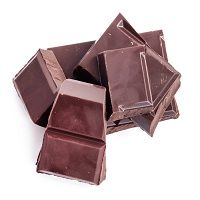Article
Gut Bacteria-Based Supplements Can Cut Cravings for High Calorie Foods
Author(s):
People often plagued with cravings for their favorite guilty-pleasure foods might be in luck. New research has shown that consuming milkshakes with a supplement called inulin-propionate ester could mitigate cravings for chocolate, pizza, and other high-calorie foods.

People often plagued with cravings for their favorite guilty-pleasure foods might be in luck. New research has shown that consuming milkshakes with a supplement called inulin-propionate ester could mitigate cravings for chocolate, pizza, and other high-calorie foods.
According to the study published in The American Journal of Clinical Nutrition, the supplement works specifically by increasing the production of propionate in the gut, which is released naturally when the fiber inulin is digested.
Previous research has shown that inulin — found in fruits and vegetables like artichokes, bananas, and asparagus – can reduce one’s appetite by slowing digestion and increasing fullness.
As such, researchers from the Department of Medicine at Imperial College investigated exactly how propionate reduces appetite and whether the combination of propionate and inulin, inulin-propionate ester, could be more effective than inulin intake alone.
A total of 20 healthy-weight men were included in the study and were randomly selected to either consume a milkshake with inulin-propionate ester or an inulin-only milkshake.
Upon consumption, the men were asked to look at pictures of low-calorie foods like salads and fish or high-calorie foods such as cake and pizza. Their brain activity was monitored using functional magnetic resonance imaging (fMRI), as they continued to view the pictures.
Results indicated that the men who drank milkshakes with the combination supplement had “reduced activity in reward centers of the brain “called the caudate and the nucleus accumbens — the areas of the brain that had been associated with food motivation and cravings – but only when they had seen images of high-calorie foods.
Also, the men who drank inulin-propionate ester milkshakes reportedly rated the high-calorie foods as less appealing than the participants who drank the inulin-only milkshakes.
The study’s lead author, Gary Frost, PhD, remarked in a news release, “The study is filling in a missing piece of the jigsaw — and shows that this supplement can decrease activity in brain areas associated with food reward at the same time as reducing the amount of food they eat.”
This finding, said the researchers, could explain why some people are more likely to gain weight than others, since they may have lower production of propionate.
“This study illustrates very nicely that signals produced by the gut microbiota are important for appetite regulation and food choice. This study also sheds new light on how diet, the gut microbiome and health are inextricably linked adding to our understanding of how feeding our gut microbes with dietary fiber is important for healthy living, said Douglas Morrison, PhD, the study’s co-author.




